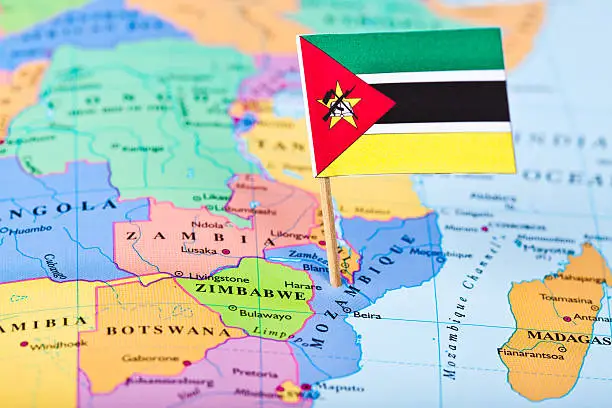Those who remain silent in the face of injustice are consenting to it. Injustice knows no middle ground. Either it is, or it is not. Either the elections were fair, or they were rigged.
It is with this in mind that I have decided to write about the current situation in Mozambique, a sister country of Angola and a member of the so-called Civilized Nations. Mozambique is currently experiencing a period of tension following the presidential elections, which were marked by several irregularities. These irregularities have been attested by reports by International Observers, including the European Union, the MOE, the CPLP, and the statement by the Episcopal Conference of Mozambique, dated October 22, 2024.
The elections in Mozambique(and many others under dictatorial or authoritarian regimes) are a mere exercise in the appearance of participation, where the will of the people is neither felt nor decisive in the formation of the governing apparatus. The people are mere spectators. “The game is already decided, even before it begins.” This time, many Mozambicans chose not to vote, resulting in the highest abstention rate in the history of multiparty elections in the Indian Ocean country. This clearly reveals a lack of trust in institutions, in the democracy that is being crafted, and in the uselessness of this solemn civic exercise in this region.
Restoring the truth requires courage—a courage that is only found in altruism and love for one’s country, a country that must be seen above partisanship, especially because there can be no party politics without a country (geographical space). The motherland makes no distinctions among its people; it cares for and loves everyone without exception, because we are all her children, with both rights and duties. These disputes have escalated into violent post-election protests, with security forces reportedly using excessive force to quell dissent. Driven by the desire to defend their ‘stolen’ vote and also to avenge the deaths of Dias and Guambe. Mozambican protesters have vowed to remain in the streets until the right thing is done.
As for the police and military forces, they should not be dedicated to protecting impostors in power, but rather to protecting the citizen. For there is no real political power without the population over which it is exercised. Security authorities must not allow themselves to be puppets of partisan ideologies, ideologies that reflect the interests of an aristocratic minority, which always seeks to exercise power (the ability to command and be obeyed) without respecting the basic rule of power—its origin in the people, the supreme sovereign, in the view of Jean Bodin.
Anyone who is a police or military officer should read The Nuremberg Trials without fail. To briefly summarize: an order from the executive branch should not be obeyed blindly; the order must be reasonable, meaning it must be justified by reason. Officers should assess whether the conditions for carrying out such orders are just. In the words of the military pilot and renowned writer Antoine de Saint-Exupéry, these officers, executing a disorderly order, must judge themselves! This is the hardest part, says the Little Prince: “If you are able to judge yourself, it is a sign that you are a true sage.”
Wrongly, many are demonstrating against any form of opposition (against the initiatives of the PODEMOS Coalition), but it is important to emphasize that Mozambique (and many other states) will not develop if they do not rid themselves of impostors or, at the very least, political actors who seek power at any cost—even at the expense of innocent lives, or people who simply seek to restore the truth of the facts (such as the murders of Paulo Guambe and Elvino Dias, the latter being the lawyer of the presidential candidate Venâncio Mondlane). Murders and crimes of this nature undermine the future of any nation that claims to be democratic and rule-of-law-oriented. We cannot hide behind false pretexts, claiming these murders are the result of family disputes; they are, without a doubt, political assassinations. We urge legal institutions to preserve justice, or else one day we will regret it when they fail. The Mozambican justice system lacks justice! These institutions appear to be in a state of convalescence; when there is still a minimum of adherence to the rule of law, it is crucial to preserve that, so that we do not later find ourselves hiding in the shadow of cowardice and in the genuine fear of the consequences of our own wrong decisions.
To those who still support the ruling party, FRELIMO, we ask for little: only the restoration of truth (by looking at their “actas” and “editais”), the only guarantee for building a Nation. No state will progress if it does not reconcile the facts with the truth. This is not a fallacy—practice has taught us so. Let us not close our eyes; we must look, judge, and act. At this moment, every citizen must affirm that partisanship should not supersede patriotism. Let us not deceive ourselves: “The dominant party model promotes a limited will to pursue reforms.” The lack of basic conditions, in my view, does not discriminate between supporters and non-partisans. The same goes for the state of communication routes, the prices of basic food products, and many other economic goods and services.
And as I once said, African political parties that came to be upon independence will have to assume their democratic role: to be the opposition, letting go of power—power that is neither one’s property nor to be monopolized. It should not remain under the control of liberators who have become colonizers.
This piece solely expresses the opinion of the author and not necessarily the organization as a whole. Students For Liberty is committed to facilitating a broad dialogue for liberty, representing a variety of opinions. If you’re interested in presenting your perspective on this blog, click here to send us your own piece submission!

2 comments
I have apreciated so much. Congrats!
Go on 👏
Muito bem.